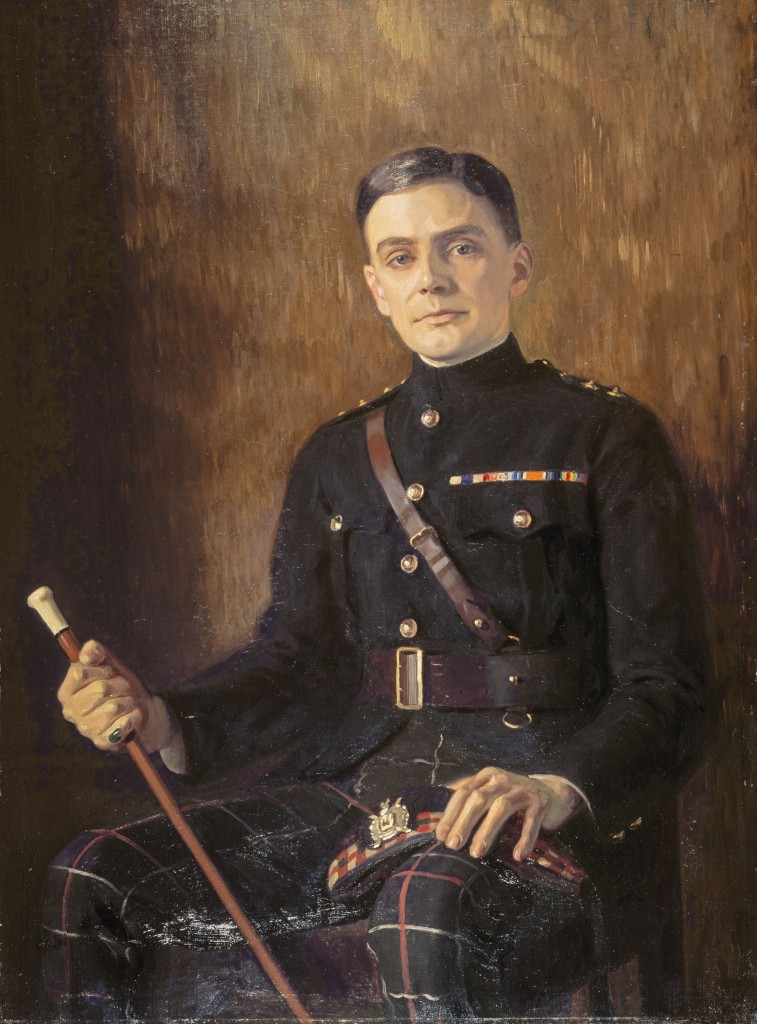
Chasing Lost Time: The Life of C. K. Scott Moncrieff: Soldier, Spy, and Translator, by Jean Findlay, Farrar, Straus and Giroux, 368 pp., $30
In her introduction to Chasing Lost Time, Jean Findlay recounts that when told of her plan to write her thesis on À la recherche du temps perdu, her elderly uncle warned, “It killed Proust to write it, it killed CK to translate it, it’ll probably kill you to read it.” She took his advice, switched to Balzac, and only years later settled down to read Proust in the English translation of Charles Kenneth Scott Moncrieff, the “CK” to whom her uncle had referred. Had Scott Moncrieff not devoted his last years to the remarkable endeavor of becoming the first English translator of a long, difficult French novel written in an innovative, original style, he would be forgotten today.
Findlay, who happens to be Scott Moncrieff’s great-great niece, takes advantage of family letters, diaries, and notebooks to bring him back to life. She depicts a charmer, gifted with remarkable literary taste and yet himself not a poet or writer of great brilliance. But he had a natural talent for translation. As early as 1919, he proposed a translation of Proust to the London publishing firm of Constable & Co., but according to Findlay, the editors, who clearly had never heard of the French writer, replied that “they did not see much use in publishing a translation of Prévost.” So he decided on a translation of La Chanson de Roland, and in 1921, completed one of Beowulf. Meanwhile, he had been hired as private secretary to Lord Northcliffe, owner of The Times (London), and a year later became the paper’s foreign subeditor. By then, he had returned to Proust, having signed a contract with Chatto & Windus for the translation of the novel’s first volume.
In 1923, Scott Moncrieff’s life took a new turn. He was recruited as an intelligence agent by the British government and sent to Italy to monitor Mussolini’s activities. Journalism and translation provided excellent cover. More important, he had time to work for himself, and work he did at an inhuman rhythm until his death from stomach cancer in 1930. And this period is the true interest of Findlay’s book.
Scott Moncrieff spent eight years translating the first six volumes of À la recherche du temps perdu, periodically taking breaks from Proust’s demanding prose to translate Stendhal, Luigi Pirandello, and the letters of Héloïse and Abélard! With Proust he faced three problems: the author was alive but recoiled from any communication with him, the text he was working from was faulty, and the novel’s homosexual theme posed legal difficulties in Britain.
Although Proust’s knowledge of English was questionable, a conversation with him would have been enormously helpful. Alas, it proved impossible to arrange. “He is a reticent devil,” Scott Moncrieff concluded. Neither did Proust acknowledge receipt of the manuscript. So when the text went to press, Scott Moncrieff correctly anticipated Proust’s misgivings about the title. Instead of a literal translation, he had chosen a line from a Shakespeare sonnet, “remembrance of things past,” to commemorate the novel’s introduction into the annals of English literature. Proust did finally thank Scott Moncrieff, adding that he was the only one of his many translators to whom he had written. Still, he criticized both the Shakespearean title, which did not reflect the intentional ambiguity of lost time–wasted time, and Swann’s Way, the title of the first volume, which to him seemed too ambiguous. Nevertheless, Proust recognized “the remarkable way” the translation had been done. A month later, he was dead.
Scott Moncrieff corrected as well as he could the numerous mistakes of the text he was working with. The French first editions were rife with typos and absurdities. Worse, Proust had died before he had had time to revise the final volumes. Scott Moncrieff had hoped for their speedy publication but had to wait five years for the last one, which came out in 1927.
Finally, how would his English publisher overcome the homosexuality obstacle? In spite of Scott Moncrieff’s efforts to soften Proust’s frankness by means of euphemism and innuendo, Chatto remained convinced that he, and possibly Scott Moncrieff himself, would be prosecuted under the Obscene Publications Act. In the end, the Americans proved more intrepid. Alfred A. Knopf took over the rights from Chatto and in 1929 published the second volume, Cities of the Plain. Sadly, Scott Moncrieff died a year later, before he could finish Proust’s final volume, Time Regained. Stephen Hudson completed the work, becoming the first but not the last translator to revise Scott Moncrieff’s whole manuscript.
A French critic once wrote that translations were like belles infidèles, women either beautiful or faithful but never both. Scott Moncrieff’s admirable work has generally been considered more beautiful than faithful, hence the endless corrections. But for many years—until the 1981 Terence Kilmartin revision, based on the more reliable text of the 1954 Pléiade edition—it stood as the best entryway to the magical Proustian world.

